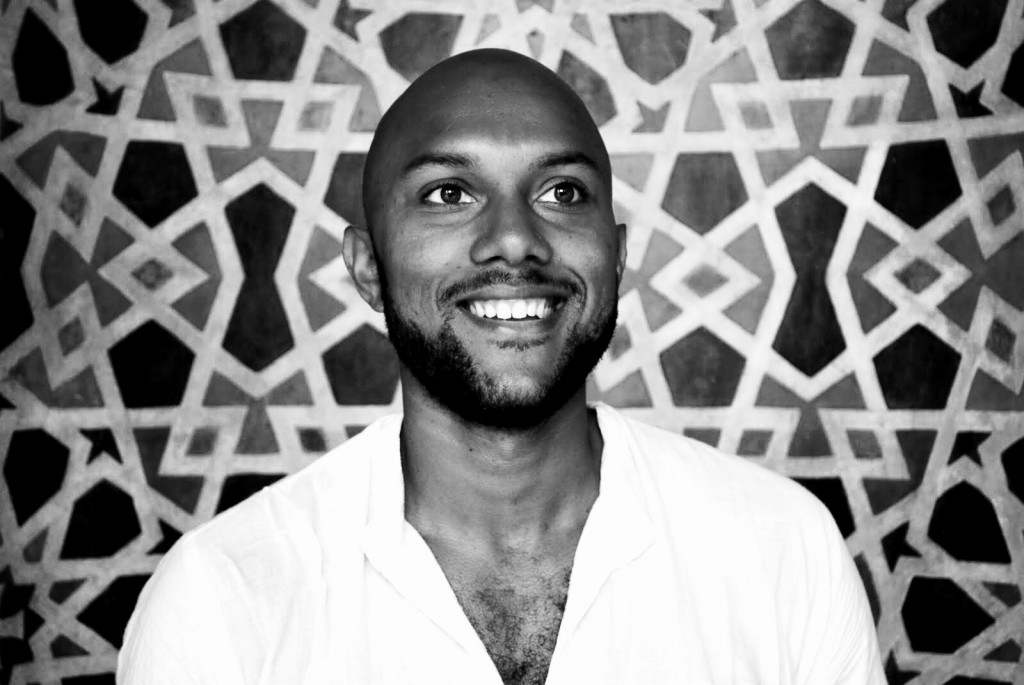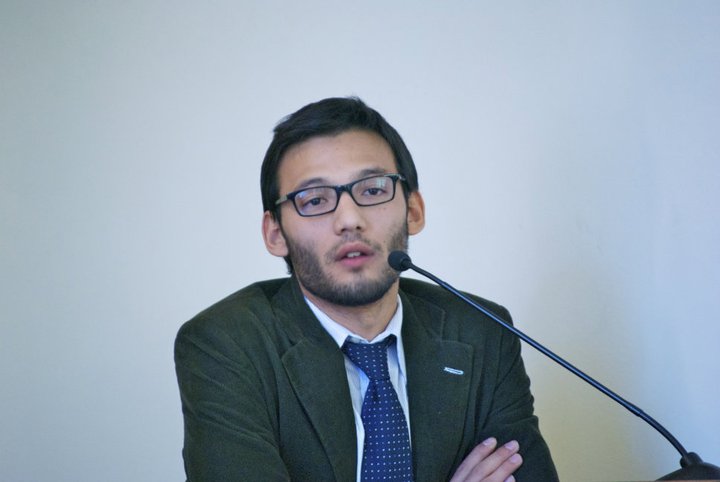This post was contributed by Alexis Alvarez Nakagawa, PhD Candidate and associate tutor in the School of Law
“After each death, I find myself mouthing a cumbersome chain of lawyerly words, hoping for ironclad prosecution and maximum sentences, to bring to justice those who have killed Rekia Boyd, Tamir Rice, Mike Brown, and numerous others. I hear myself invoking the heroic terror of the criminal justice system. I make no illusions that this will spackle the gaping fault of the United States’s racial terrain.
To digress for a moment, I also work on refugee law, and though I support and believe in refugee claims for securing better lives for individual applicants, these prosecutions seem to me much like the promise of refugee law to affect real change: vacant. The international refugee law system, while important to scores of individual claimants, represses a more meaningful commitment to free movement and serves to further stabilize and legitimize a system of border violence and geopolitical exploitation.
Criminal prosecutions in these cases of police murder are (sometimes) offered as individual sanctions only after the harm has been done, and they do not seek to reduce the widening net of carceral politics. But then again, is this the time to abandon the use of criminal justice?”
– Eddie Bruce-Jones, Black Lives and the State of Distraction.
Eddie Bruce-Jones’ article Black Lives and the State of Distraction, which appeared in at the Los Angeles Review of Books last week, is a beautifully written and insightful short piece that shows the difficulties and tensions that arise for anyone who tries to think critically from and through the experience of being involved, at some stage of their life, in the criminal justice system and tries to relate this experience to a broader agenda of social change and political emancipation.
However, perhaps what is most striking about Eddie’s article, beyond his thoughtful analysis is his sensibility in approaching very difficult political and theoretical issues. A sensibility that shows that this piece was written not only as a insightful meditation about the barbarities and paradoxes of the system, but also by the stroke of a cathartic impulse –an impulse that many of us feel from time to time – that departs from the unpleasantness of and discomfort with current theoretical standpoints in criminology and criminal justice studies.
In what follows, I would like to deploy some thoughts that focus more on where I might disagree with Eddie, even if I really feel identified with his mood and even when I believe that, very probably, he will identify with my own. That is why, more than to formulate some serious objections to his thinking, I would like to suggest a slightly different but complementary approach with the ultimate aim of opening up a discussion. Thus this commentary on Eddie’s work is also an invitation to debate to anybody that would want to add or move forward our ongoing conversation.
I would like to formulate three brief points of difference with Eddie’s piece.
1) Maybe I should begin by stating that I sadly believe that there is no effective way, for the moment at least, to provide some kind of real and effective reckoning of state violence within an abolitionist framework. I have to wonder, on this point, what we would do in these cases of structural violence, of racism and sexism if we do not plead for “justice” or at least for the application of the same standards that allegedly everybody would receive in those circumstances?
I recall that Nils Christie, one of the founders of the abolitionist theoretical and political movement, used to say that even in the cases of state violence (more precisely, he was speaking about genocide) an abolitionist position would be to sit the “perpetrators” and the “victims” together so that they can negotiate towards a solution (and also maybe a “reconciliation”). Besides this solution not seeming very “practical” in our current cultural context, more importantly, in many respects, this approach seems familiar to some past failed experiences and, more precisely, similar to the “state mandated reconciliation” of South Africa’s transitional process. Though, we know with some detail how this story ends: nothing changed very much in South Africa in the wake of its transition to democracy.
On the contrary, we can suggest that this transition legalized a “double way” system in which the state violence was acquitted in exchange for lean confessions, while still all the inhabitants at the margins of South African society continued to be “processed” by a very racialized criminal justice system. In other words, they legalized what we already have in fact in every criminal justice system around the world.
2) One thing that needs not to be left out of view, I believe, is that abolitionist strategies can also legitimate undesirable agendas (such as prosecutions, as Eddie points out). Leaving aside how many abolitionist strategies and alternatives to prison have been used so far to extend the scope of the criminal justice system and with that the framework of social control (rather than reducing them as was the original idea), I think that this strategy, in this context of state violence, can even also be used to legitimate the grounds of an state of exceptionality (in other words, “impunity”) precisely in these, that are what we can call fairly, “the worst cases”.
This is especially true if we know, as we surely do, that the criminal justice and prison system will not disappear in the short term and will continue to exist for all the other “regular crimes”. As Eddie himself has noted to me in a subsequent conversation, it is very hard to envision the end of the criminal justice system without thinking at the same time about abolishing the state and without disclosing the intertwined relationship between law and violence—so hard, in fact, immediately after one starts to seriously contemplate abolitionism, the very idea of it begins to fade away as a too-distant outcome.
But, I may add that, to make matters even worse, if we accept, as I am probably keen to accept, that we need to abolish state sovereignty to be able of practically think about abolishing the criminal justice system, we face a new and more intractable problem: the very idea of sovereignty is so centrally tied to the state as with notions of autonomy, self-determination and freedom that underpin the idea of political emancipation (and which in turn encompass the main goals of abolitionism), that we very quickly reach an unavoidable dead end: we cannot have abolitionism with sovereignty, but it seems that we also cannot have abolitionism without it.
On the other hand, I think that some matters of principle (let’s say “the prison is bad, and therefore we should not take the risk of legitimating it in any case”) may lead us to a form of practical paralysis. Or, in other words, to even worst “distractions” than the distraction of prosecutions: it may lead us to the work of engineering “beautiful distractions” that very probably will not have any political relevance today. Or is it that only prosecutions can be a distraction? Can’t be a purist abolitionist strategy constitute an even worst distraction for current and pressing issues that needs an answer today? I am not saying that we must always surrender to the tyranny of the now, but I strongly believe that the danger and temptation of being “distracted” is equally present in many abolitionist positions. How then can we be able to stand by the side of a radical openness to an alternative future without being distracted from our current, present demands? How can we avoid allowing our radical goals from stealing us completely from this untreatable reality?
3) In another but related vein, I believe that still some prosecutions can serve to expose structural violence, racism and sexism and that some criminal trials are more than just distractions and can be good “catalysts” or “triggers” of broader political struggles. And not only that! To some extent, in these kind of cases, not only can (human) perpetrators go to trial, but also in many relevant ways, the state or sovereign violence is put under scrutiny at the dock.
And of course, there is a lot of space there for de-legitimating state violence and even the criminal justice system. It might be possible to think in a way of de-legitimating the structural violence of the system with the tools of the system itself. Can we use the criminal justice system against itself? Can we re-direct its violence against its violence? I believe that precisely in these cases of police violence, racism, sexism and even genocide or other gross human rights violations, we have a very good opportunity to achieve this.
I think that it is even possible, within this framework, to defend a more “up-to-date” abolitionist position: one that of course pursues the same goals as the other more purist abolitionism, but by more unclean, impure and maybe effective ways. Can we find within all this a thread, a hint, the onset of a road towards a new abolitionism? Can be this a good synthesis between a radical openness and an engagement with current pressing issues?
Find out more




